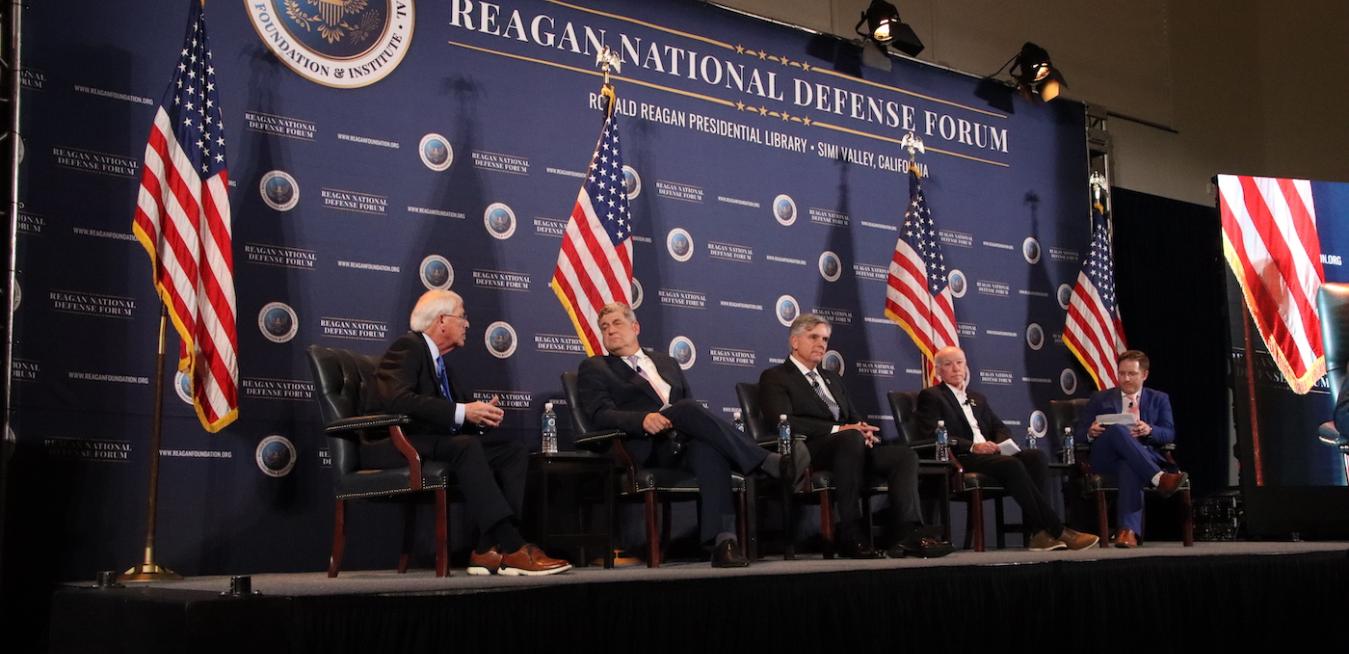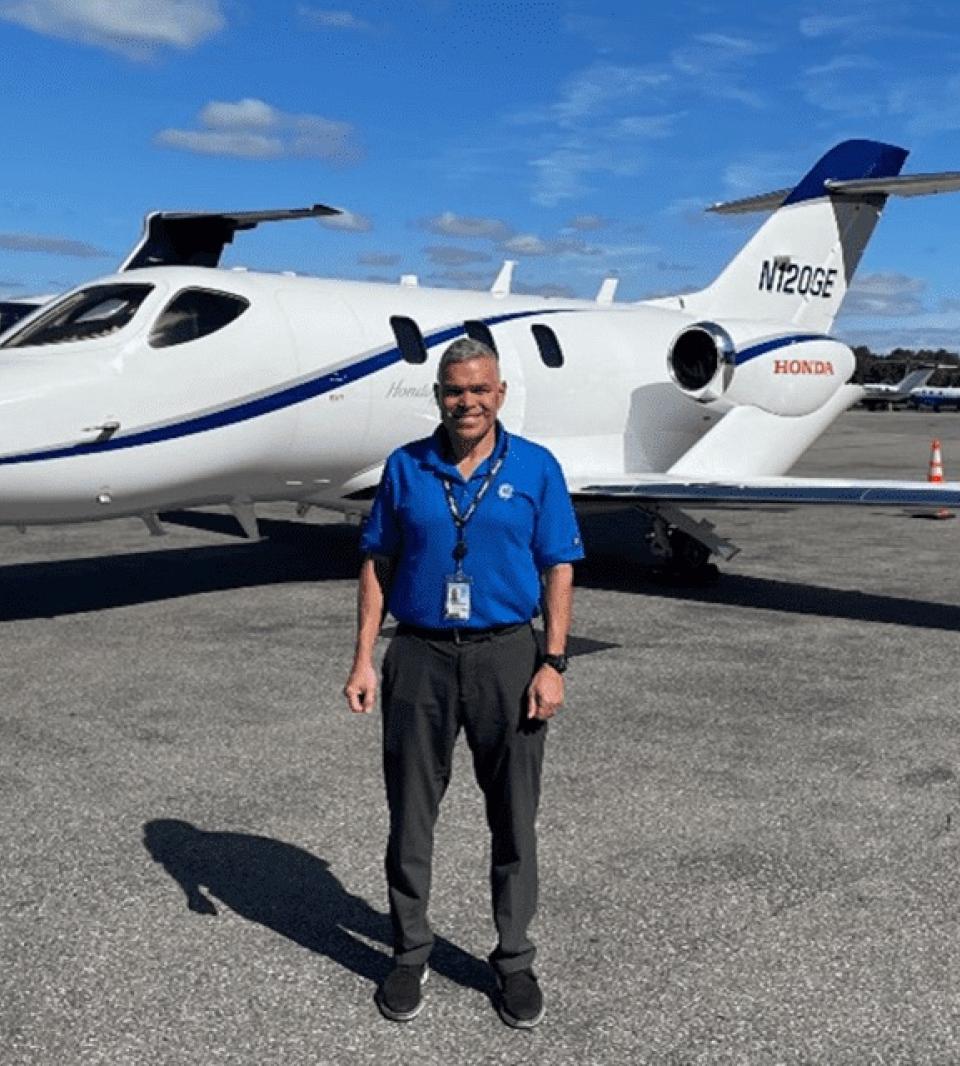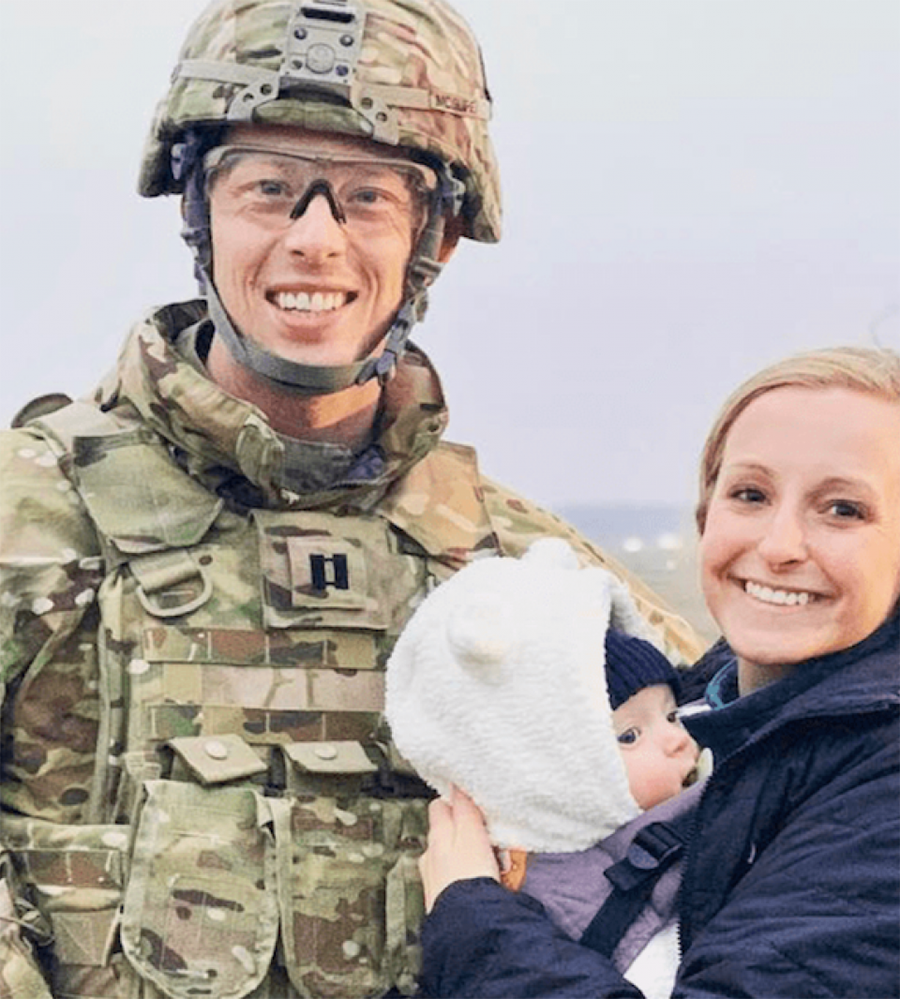Hundreds of leaders across the military, government, defense industry, and media gathered in Simi Valley, California, last weekend at the 10th annual Reagan National Defense Forum to discuss the current and future state of the U.S. military.
“Day to day, we’re right there with all of our military customers assuring readiness while we invest in next-generation platforms,” said GE chairman and CEO and GE Aerospace CEO Larry Culp.
About five years ago, Alex DaRosa was watching a colleague deliver a presentation to the Pilot Advocacy Group at GE Aerospace when he had one of those life-altering “aha” moments. The speaker was Walt Moeller, who works in flight operations, writing engine manuals for pilots. But for many years, Moeller’s main job was flying commercial passenger jets. “He basically came in and talked about his time being a captain for Comair and how that was his favorite job of his entire life,” DaRosa recalls.
It’s practically endemic in the modern world. The college student finishing a term paper as the sun comes up, the new parents feeding the baby at 3 a.m., the foreman on the graveyard shift — they’re all among the more than a third of adults in the U.S. who don’t get enough sleep. Long-term, sleep deprivation can have severe ramifications, beyond what can be remedied by a double espresso or a power nap.
Brennen McGuire served nearly seven years in the U.S. Army — four years in the infantry, followed by 2 1/2 in intelligence. By the time he’d reached the end of his tour of duty, at Fort Campbell, Kentucky, in 2019, he had risen to the rank of captain, been stationed in five different states and served in Kuwait and Afghanistan. He’d navigated a lot of challenges in a fairly short time. Now he faced an even bigger one: What to do next?
Two U.S. Army workhorse helicopters, the Black Hawk and the Apache, are getting futuristic new engines that promise to keep the legendary choppers in service for decades to come. On Friday, the Department of Defense awarded GE a $517 million contract to develop new engines for thousands of the airships in service over the next six years.
Major Tim Vibbert trusts GE with his life. He spent 15 years as an Army pilot flying Apache attack helicopters powered by engines made by GE workers in Lynn, Massachusetts. “I know every inch of the engine and what they do,” Vibbert says. “I bet my life on it many times.” But that’s not why he calls GE “family.”











